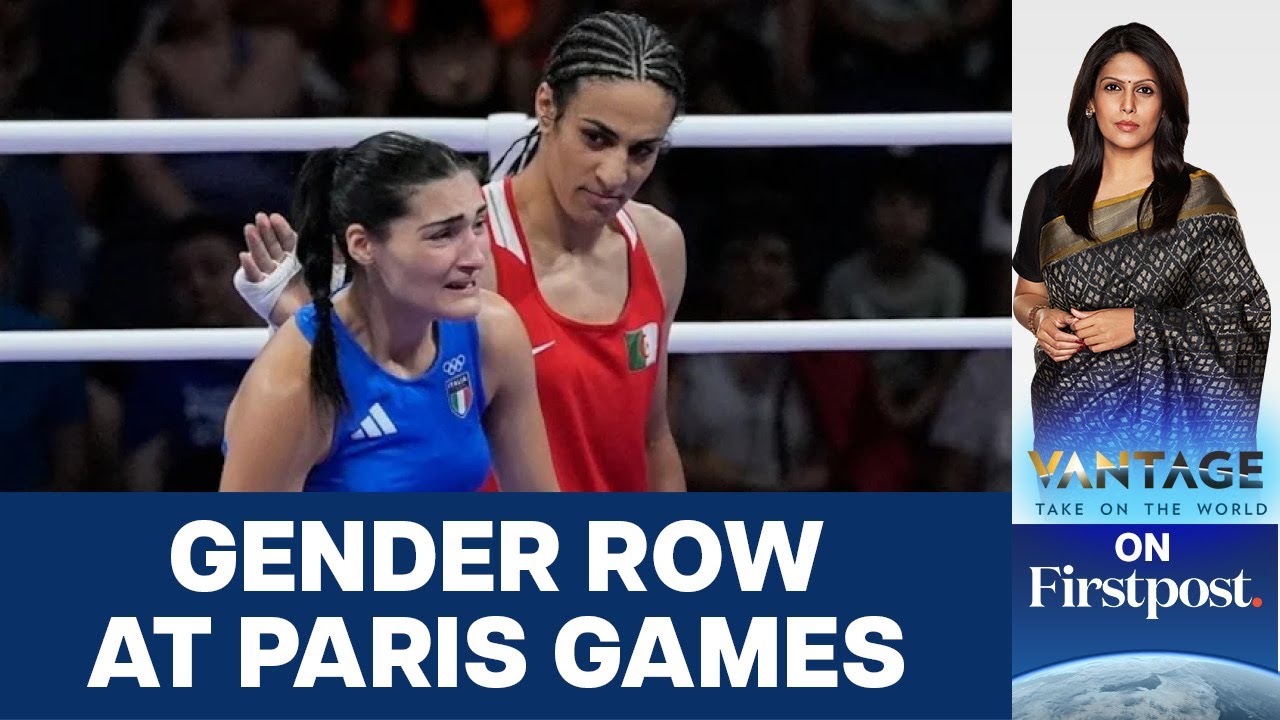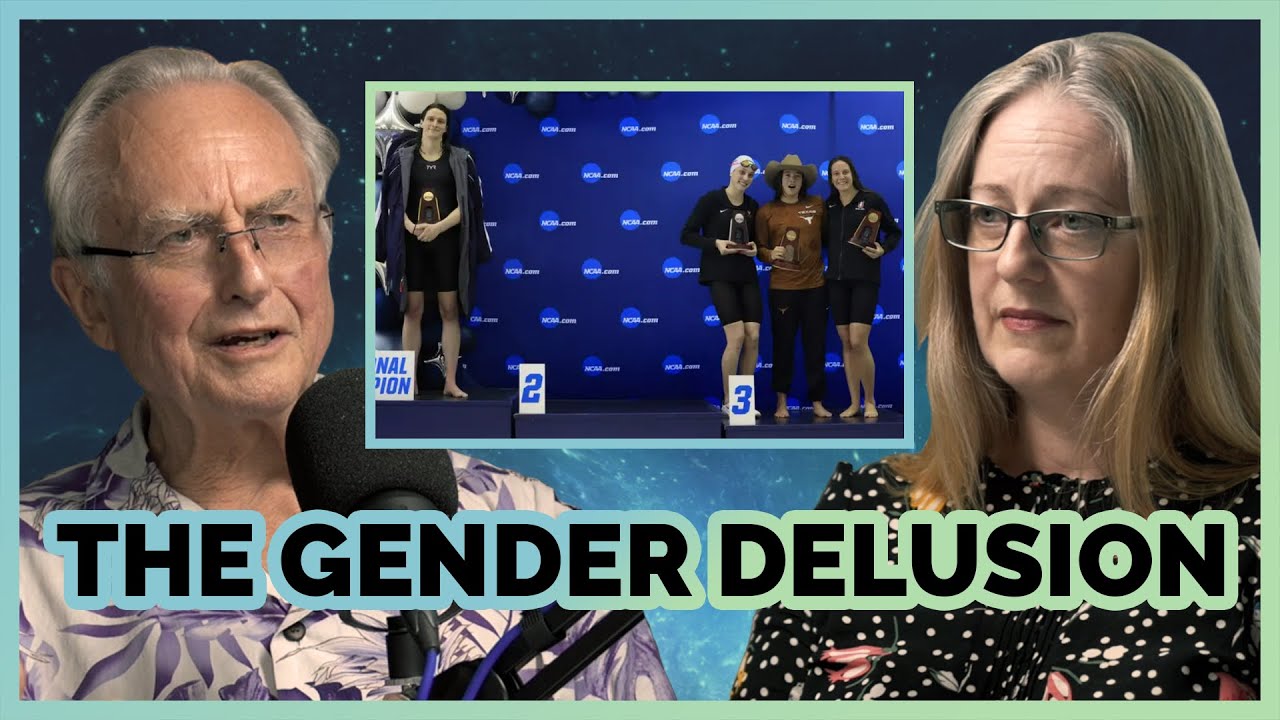Are Men Beating Women At The Olympics? - The Truth (comprehensive dissection)
Summary
TLDRThe video script delves into the complexities of gender eligibility in sports, particularly focusing on the cases of Imane Khelif and Lin Yu Ting, who were disqualified from women's boxing for failing gender verification tests. It explores the nuances of biological sex, the role of androgens, and the debate surrounding fairness in competitive sports. The script also examines the history of sex verification in the Olympics and the varying rules across different sports, highlighting the need for clear and fair criteria to ensure equitable competition.
Takeaways
- 🥊 The script discusses the controversy surrounding Imane Khelif and Lin Yu Ting's gold medal wins in Olympic women's boxing due to concerns about potential performance-enhancing advantages from being biologically male.
- 🏅 Both athletes had previously been disqualified for failing a gender verification test, which indicated they might be biological men, but the criteria for eligibility in women's sports is complex and not uniformly applied across sports.
- 🧬 The International Boxing Association (IBA) confirmed that the athletes had 'male karyotype,' suggesting the presence of XY chromosomes typically found in males, which was a key factor in their disqualification.
- 🔬 The debate involves understanding the role of testosterone levels, the SRY gene, and other genetic factors that may contribute to physical attributes and athletic performance.
- 🏆 The IOC (International Olympic Committee) has different criteria for gender eligibility compared to the IBA, leading to a conflict in how to classify athletes like Khelif and Yu Ting.
- 💉 The use of testosterone level cut-offs as a criterion for eligibility in women's sports has been implemented in some sports, but not consistently across all Olympic events.
- 🤔 The script raises questions about fairness in women's sports, considering the potential for individuals with male biological traits to have an unfair advantage over those with typical female biology.
- 🏋️♀️ The discussion includes the impact of conditions like Androgen Insensitivity Syndrome and 5 Alpha Reductase Deficiency on physical development and athletic performance.
- 🧐 The script emphasizes the need for clear and consistent criteria for gender eligibility in sports, as well as the importance of privacy and sensitivity in handling such cases.
- 📚 It also highlights the complexity of biological sex determination and the limitations of current testing methods in ensuring a level playing field in sports competitions.
Q & A
What is the controversy surrounding Imane Khelif and Lin Yuting's participation in women's boxing at the Olympics?
-The controversy revolves around the fact that both athletes were previously disqualified for failing a gender verification test, which suggested they might be biologically male. This has led to debates about potential performance-enhancing advantages and whether biological males should compete against women in sports.
What is a gender eligibility test, and why is it conducted?
-A gender eligibility test is a medical examination conducted to determine an athlete's eligibility to compete in a specific gender category, typically women's sports. It is conducted to ensure fair competition by verifying that athletes meet the necessary biological criteria to compete in their declared gender category.
What is the International Boxing Association's (IBA) stance on Imane Khelif and Lin Yuting's disqualification?
-The IBA disqualified both athletes based on the results of a gender eligibility test conducted during the 2023 World Championships, asserting that they did not meet the required criteria and had competitive advantages over other female competitors.
What does it mean to have an 'abnormal' chromosomal analysis in the context of gender eligibility testing?
-An 'abnormal' chromosomal analysis in gender eligibility testing means that the individual's complete set of chromosomes does not align with the typical pattern seen in males (XY) or females (XX). In the case of Imane Khelif and Lin Yuting, it was revealed they had a male karyotype, indicating a biological male status.
How does the IOC's stance on eligibility for women's sports differ from the IBA's in the context of the discussed athletes?
-The IOC insists that the fighters were born and raised as women, and therefore should be allowed to compete, despite the IBA's assertion that their test results suggest they are biologically male and ineligible for women's boxing.
What is the significance of the SRY gene in determining an individual's sex for sports eligibility?
-The SRY gene, found on the Y chromosome, acts as a signal for male development. Its presence typically indicates a male biological status. In the past, the IOC used the detection of the SRY gene as part of sex verification testing for female athletes, but this practice has since been discontinued.
What is the role of testosterone in determining athletic performance and its relevance to gender eligibility in sports?
-Testosterone is an androgen hormone that contributes to the development of male characteristics, including muscle mass and bone density, which can influence athletic performance. In some sports, testosterone levels are used as part of the criteria to assess eligibility for female categories, with certain levels requiring suppression for athletes to compete.
What is the history of sex verification in the Olympics, and how has it evolved over time?
-Sex verification in the Olympics began with chromosome testing and the detection of the SRY gene. However, due to ethical concerns and the complexity of biological sex determination, this practice was discontinued by the 2000 Summer Olympics. Instead, hormone level cutoffs and specific criteria for conditions like DSD have been implemented to assess eligibility.
What are the implications of the Caster Semenya case for the broader discussion on gender eligibility in sports?
-The Caster Semenya case highlights the complexities and controversies surrounding gender eligibility in sports. It brought attention to the need for a nuanced approach to determining eligibility, considering factors beyond the presence of the SRY gene and including hormone levels and their impact on performance.
What is the current guidance from the IOC on transgender athletes in women's sports, and how has it been received by various sports federations?
-The IOC's 2021 guidance placed the responsibility on individual federations to determine eligibility criteria for transgender athletes in their respective sports. This has led to different approaches across sports, with some banning trans women entirely, while others have implemented testosterone level requirements for eligibility.
How do differences in lung volume, heart size, and other physiological factors contribute to athletic performance and gender differences in sports?
-Physiological differences between males and females, such as lung volume, heart size, and blood volume, can impact athletic performance. Males typically have larger lung volumes and hearts, which can contribute to higher oxygen carrying capacity and cardiac output, providing a potential advantage in endurance and strength-based sports.
Outlines

This section is available to paid users only. Please upgrade to access this part.
Upgrade NowMindmap

This section is available to paid users only. Please upgrade to access this part.
Upgrade NowKeywords

This section is available to paid users only. Please upgrade to access this part.
Upgrade NowHighlights

This section is available to paid users only. Please upgrade to access this part.
Upgrade NowTranscripts

This section is available to paid users only. Please upgrade to access this part.
Upgrade NowBrowse More Related Video

Algerian Athlete Branded "Man" After 46-second-bout in Women's Boxing | Vantage with Palki Sharma

Paris Olympics 2024: IOC responds after boxer Carini withdraws from Khelif fight | BBC News

Doctor Explains Imane Khelif vs Angela Carini Olympic Boxing Controversy

Imane Khelif, boxer in gender test issue, wins first Paris Olympic fight | INQToday

"Trans: When Ideology Meets Reality" - My conversation with Helen Joyce

Trans When Ideology Meets Reality My conversation with Helen Joyce 1080p 25fps VP9 160kbit Opus
5.0 / 5 (0 votes)